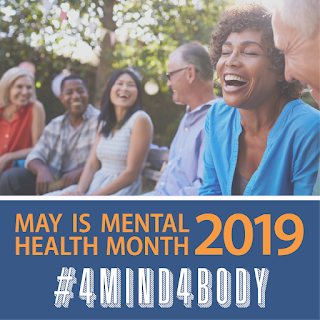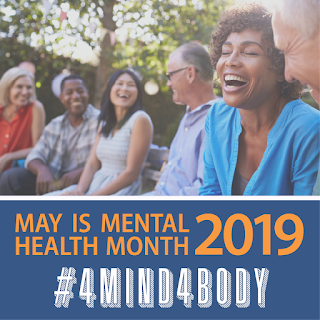Mental Health Month is an annual observance that goes back to 1949. For the last 70 years, the nonprofit Mental Health America (MHA) has sought to educate Americans about mental illness. With the help of its affiliates, the organization aims to erode the damaging stigma of mental health disorders. Mental illness, such as addiction, depression, and post-traumatic stress disorder, affects millions of Americans.
Depressive disorders affect more than 300 million people worldwide, according to the World Health Organization (WHO). Such conditions are believed to be the leading cause of disability around the globe. Despite the existence of evidence-based treatments and programs of recovery, almost 60% of adults with a mental illness didn’t receive mental health services in the previous year.
People continue to suffer in an endless cycle of disorder because they are unwilling or unable to access support. However, we have an opportunity to change the reality of countless lives through open and honest conversations.
When men and women talk about psychiatric issues, and what they do to find balance, they inspire others to take action. Conversations about debilitating mental illnesses take power away from the disease and redirect it towards prioritizing psychological and physical health.
This year’s Mental Health Month theme is #4Body4Mind. Mental Health America’s focus this month is an extension of the goal in 2018. The organization is encouraging Americans to “explore the topics of animal companionship (including pets and support animals), spirituality, humor, work-life balance, and recreation and social connections as ways to boost mental health and general wellness.”
Physical and Mental Health
People who present to treatment for addiction and co-occurring mental health disorders learn that changes in thinking and behaviors are in order. Men and women discover that having a healthy mind and body are possible realistic goals.
Successful treatment outcomes and achieving long-term recovery rest on prioritizing mental, physical, and spiritual maintenance. Balance in all things must be the goal for any person seeking to transform their life. Abstinence, therapy, and a program of recovery alone, while of vital importance, aren’t enough. Mental stability depends on physical health and spiritual nurturing.
MHA has useful tools and tips to help people make improvements and find stability. Individuals in recovery from addiction or psychological conditions benefit significantly from learning how to balance work and play, the ups and downs of life, and physical and mental health.
There are times when it’s necessary to take a day off from work to focus on mental health. However, MHA reports that over 75% of people are afraid of getting punished for taking a day off to attend to their mental health. Without mental well-being, people face the risk of being unable to address their responsibilities.
Poor work-life balance increases your risk for health conditions like sleep problems, digestive disorders, and mental health problems. This is especially true for people who work longer shifts or on nights and weekends, Chronobiology International reports.
At Hope By The Sea, it is our goal that everyone in or out of recovery will take some time this month to consider their mental health. We encourage you to take a look at the Mental Health Month materials for leading a more balanced life.
Southern California Dual Diagnosis Treatment
If you are struggling with an alcohol or substance use disorder and a co-occurring mental illness, Hope By The Sea can help. Please contact us today to learn about our specialty tracks and how we create personalized treatment plans for each client. The miracle of recovery can be yours too… Hope Starts Here!


